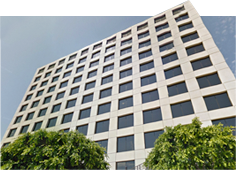Asylum Backlog Shows no Signs of Letting Up
USCIS officers at asylum offices throughout the U.S. have been inundated with a significant increase in asylum filings in recent years. We’ve previously written about the number of backlogged asylum cases, and the numbers continue to increase. The number of backlogged asylum cases from January 2015 to March 2015 increased by about 5,000 cases, and since then has continued to rise—from over 75,000 backlogged cases in January of 2015 to 82,000 in March of 2015.The Los Angeles asylum office has the heaviest backlog, and Houston the least amount of pending cases.
Revisiting the Cause of the Backlog
Since early 2013, asylum officers have seen a significant increase in young people, largely from Central America, fleeing adverse conditions in their home countries and seeking entry to the U.S. Upon claiming a fear of persecution to the U.S. border officials, the migrants are administered a credible fear interview by a U.S. asylum officer. Because the number of asylum seekers is so vast, asylum officers are spending much more time than in previous years on credible fear interviews, compounding the backlog. All indications are that the backlog may get worse before it gets better, as the number of migrants at the border has not decreased and summer months traditionally see a spike in asylum seekers arriving at the U.S. border. Currently there is a documented backlog in affirmative asylum applications of around 40,000 cases, a majority of which were filed last year alone.
The Asylum Division tells us that it is continuing to ramp up hiring and improve training. The trend in increasing hiring is expected to continue through at least 2016. I’ve been impressed by the newer officers, who by and large perform their duty with great diligence and sensitivity to the issues involved. It is hoped that the new core of officers and increased hiring will continue to take a bite out of the backlog. It is the hope of the immigrant community that the backlog of Asylum cases will be quickly resolved for the sake of those who need protection and resolution.
Frequently Asked Questions While Waiting in the Backlog
1) How long will my case take?
The timeframe to be called in for an interview is currently impossible to predict with certainty. Up until mid-2013, I could quite accurately predict a 7-11 month timeframe to be summoned for an asylum interview. Lately, the processing is all across the board. One client has an asylum claim which was submitted two years and nine months ago, and is still waiting for an interview. Another client’s case was filed three weeks ago, and our interview has been scheduled for next week.
2) Can my case be expedited?
The Asylum Division has announced measures to expedite certain cases, but there must be a serious and well-documented exigent circumstance justifying the expedite request. Our experience has been that such requests are very rarely honored and only in truly extraordinary circumstances.
3) Our translator is busy the day of our Interview, can we reschedule?
Asylum applicants who are eager to be interviewed, should try very hard to avoid rescheduling. Whether it is the translator, attorney, or work obligations causing a schedule conflict, every effort to attend should be made, as a future rescheduled date may be very far in the future. In one recent case, an applicant who rescheduled had their interview 13 months later.
4) Will moving to another state cause our interview to come sooner?
While it is true that due to different workloads, the wait time varies between offices, it is not true that relocating will cause the interview to occur sooner. On the contrary, the process of transferring your file to the other office may cause further delay–both to the interview scheduling and the EAD issuance clock. Also, the officers do not look fondly upon “forum shopping”. Having said that, if an applicant with a pending case moves, a change of address request should be made in writing to the asylum office where the case is pending, and cannot be made online.
5) Is there anything else that I should be doing for now?
Continue to watch the news, speak to friends/relatives/contacts and stay abreast of conditions in your home country, as they may be addressed during your Asylum interview. Collect any documents in support of your claim of past of potential for persecution in your home country. Conditions in your home country may have improved or worsened since you filed for asylum, and this may affect the basis of your eligibility.
Waiting for one’s asylum application to be reviewed can be frustrating and anxiety-inducing, to say the least. If you have a long pending asylum application and are wondering if you’ll ever be interviewed, you can take comfort in the fact that the government is trying to make its way through the applications as quickly as possible and in accordance with U.S. law.






